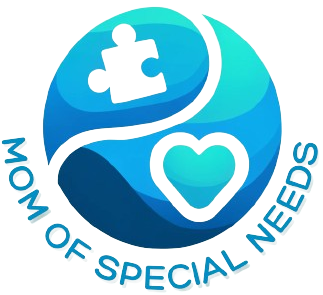
Being a mother is a journey filled with love, challenges, and unique learning experiences, especially for those who care for children with special needs. One of the frequent hurdles you might face is the lack of public understanding about your child’s condition. This can result in awkward moments, hurtful comments, and stressful situations. Here’s a guide on how to navigate public misunderstandings, educate others, and advocate for your child in a positive way.
Understanding the Root of Misunderstandings
Misunderstandings about special needs often stem from a lack of awareness. Many people do not have first-hand experience with disabilities, which can lead to misconceptions and inaccurate assumptions. Recognizing that ignorance often comes from unfamiliarity rather than malice can help guide your response. As a mom of a special needs child, navigating these situations can feel isolating, but the journey becomes more manageable with the right support system.
For insights on fostering strong family bonds and navigating challenges together, Journey Together: The Role of Family in Special Needs Parenting offers practical advice and encouragement.
Staying Calm and Educated
When confronted with inappropriate questions or assumptions about your child’s condition, maintaining composure can make all the difference. Staying calm allows you to turn misunderstandings into teachable moments that promote empathy and awareness. Preparing simple phrases to explain your child’s needs—without overcomplicating—can help defuse awkward encounters. This approach not only educates others but also demonstrates emotional resilience. Moms of special needs children often find that cultivating this balance is crucial to building emotional strength for themselves and their families.
For more strategies on nurturing both your child’s and your own emotional growth, Boundless Love: Nurturing the Emotional Growth of Special Needs Children provides valuable guidance.
Choosing Your Battles
As a parent of a special needs child, you’ll encounter moments when educating others about your child’s condition feels necessary and other times when it simply doesn’t. Choosing which situations to engage in can save your energy and emotional well-being. If someone is genuinely curious and open to learning, a brief and kind explanation can create a meaningful interaction. On the other hand, when faced with dismissive or judgmental behavior, it’s perfectly okay to walk away or redirect the conversation. Remember, your priority is your child’s happiness and your own peace of mind. Not every moment has to become a teaching opportunity; sometimes, protecting your emotional bandwidth is the best choice you can make.
Creating Awareness Through Positive Interactions
Promoting understanding doesn’t always require lengthy explanations—it can often happen naturally through positive, everyday interactions. Inviting friends, family, or neighbors to spend time with your child in casual settings helps break down barriers and dispel misconceptions. Activities like a playdate, a family dinner, or a community event provide opportunities for others to see your child’s abilities and personality, rather than focusing solely on their special needs. These moments of connection are often more impactful than words, fostering empathy and building a sense of inclusion. By showing others the joy and resilience within your family, you’re helping to reshape perspectives in a powerful way.
Building a Support Network
Connecting with other parents who are also raising special needs children is a powerful way to build resilience and gain practical advice. These connections can help you handle public misunderstandings with confidence, knowing you’re not alone. Support groups and community events can also create opportunities for shared experiences, making the journey feel less daunting. Additionally, fostering relationships within your community helps build bridges of understanding. The Power of Connection: How to Forge Bonds in the Special Needs Community explores ways to create meaningful connections that not only support your family but also cultivate empathy and inclusion in those around you.
Utilizing Resources
There are many excellent resources available that can help you educate the public while advocating for your child. Whether it’s printed brochures, online articles, or materials specific to your child’s condition, having these on hand can make advocacy less overwhelming. Sometimes, providing someone with a well-crafted resource is more effective than attempting to explain everything yourself. As moms of special needs children often say, “It’s not just about educating others—it’s about equipping them to empathize.
Setting an Example
The way you handle public misunderstandings and interactions sets a profound example not only for your child but also for the people around you. Demonstrating calmness, compassion, and confidence in these moments teaches your child how to approach similar situations with self-assurance. It also sends a message to others about the importance of respect and inclusion. Each time you respond with grace and understanding, you’re actively contributing to a culture of awareness and empathy. Over time, these small acts create ripples of change, inspiring others to follow your lead and approach differences with kindness and curiosity.
Conclusion
Navigating public misunderstandings about special needs is an ongoing process that requires patience, understanding, and resilience. By staying calm, building a supportive community, and using every moment as an opportunity for education, you help foster a more inclusive environment for your child. Remember, every step you take—no matter how small—contributes to broader awareness and acceptance. And through this journey, resources like Boundless Love and The Power of Connection can support you in creating a brighter future, not just for your child but for the community as a whole.


